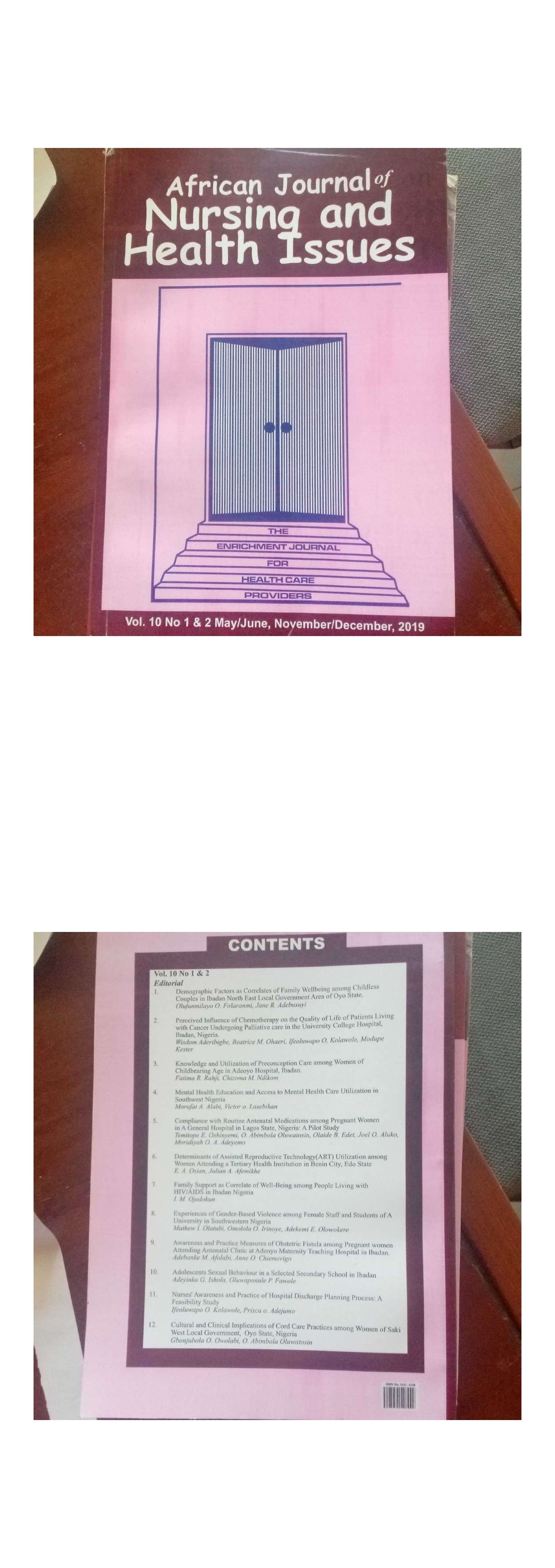
COMPLIANCE WITH ROUTINE ANTENATAL MEDICATIONS AMONG PREGNANT WOMEN IN A GENERAL HOSPITAL IN LAGOS STATE, NIGERIA: A PILOT STUDY
Background: Anaemia and malaria in pregnancy are of concern in Africa and particularly in Nigeria because they predispose to an increased maternal and infant mortality rate. However, adequate use of routine antenatal medications by pregnant women can reduce the burden of malaria and anaemia in pregnancy.
Aim: This study assessed the level of knowledge of and compliance with routine antenatal medications. It also identified factors associated with compliance among pregnant women in a general hospital in Lagos, Nigeria.
Methods: A cross-sectional descriptive research design was used. One hundred and ninety-three pregnant women in the second or third trimesters at the antenatal clinic of Surulere General Hospital were recruited in March 2017 using the purposive sampling technique. The instrument for data collection was a validated structured questionnaire with a reliability coefficient of 0.70. The data were analyzed using both descriptive and inferential statistics. Associations between paired variables of interest were performed, while the level of statistical significance was reported at a P-value of less than 0.05.
Results: Findings revealed that only 76 (39.4%) of the respondents had adequate knowledge of routine antenatal medications, though a larger proportion, 166 (86.0%), had a good level of compliance. The study concluded that respondents' level of compliance is not associated with their knowledge of routine antenatal medications but is likely to be a result of direct observation therapy practiced in the study setting.
